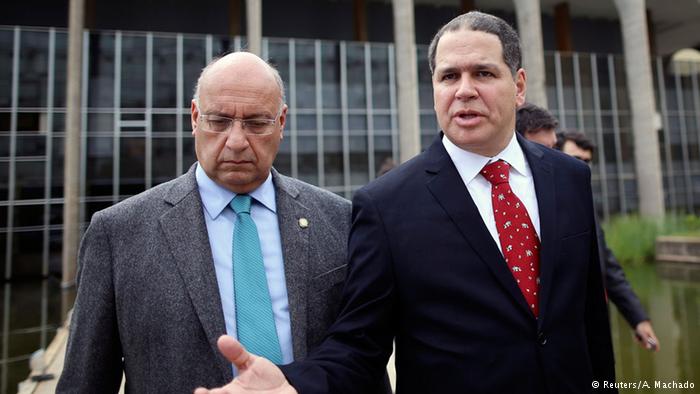
As Venezuela’s political and economic crisis rages on, foreign policy makers across the region, irrespective of their ideological orientation, are slowly beginning to reorient their positions vis-à-vis the world’s worst-performing economy. While the change of posture has been quite abrupt in Argentina, where Macri’s election victory transformed Buenos Aires from Maduro’s greatest ally to its greatest critic, the Brazilian government is quietly adapting to the growing regional consensus that Maduro may no longer be in office by the end of the year. Venezuela’s embattled President — generally seen as incompetent even by many chavistas — may either face a coup from his own party, or be ousted by the country’s National Assembly, dominated by opposition parties.
Critics have argued for months that the Brazilian government should be more assertive in establishing a dialogue with the Venezuelan opposition, anticipating that Venezuela’s current economic model would be one of the commodity bust’s most prominent victims, after years of profligate spending that depended on unusually high oil prices. The Venezuelan government’s authoritarian streak only became more apparent when President Maduro recently announced a rule stating that foreign embassies could only contact opposition members after obtaining a written permission by the government — a move ridiculed and openly ignored by many foreign diplomats in the country. Dilma Rousseff, on the other hand, has traditionally been more reluctant to criticize or provoke Caracas, possibly worried about Brazil’s massive investments in Venezuela, and the approximately U$6 bn the Venezuelan government owes to Brazilian companies.
In this context, it was highly significant that on February 25, Foreign Minister Mauro Vieira was the first leading Brazilian government representative in seventeen years to officially welcome members of Venezuela’s opposition in Brasília. Luis Florido and Williams Dávila (pictured below), currently traveling the region in order to shore up support for their attempt to oust Maduro, also spoke with Brazilian opposition figures, such as Aloysio Nunes, in the Senate’s Commission for Foreign Relations.
The meaning of Vieira’s decision to meet opposition figures in Brasília, of course, should not be exaggerated, and the Brazilian government is extremely unlikely to align with Argentina’s more critical stance. Rather, the move is the product of a growing and purely pragmatic concern in Brasília that a change of government in Venezuela could lead to a deterioration of bilateral relations, and the awkward scenario of a post-Maduro leader openly accusing Brazil of not having done enough to reign in the chavistas’ excesses.
Almost any previous Brazilian president — such as Fernando Henrique Cardoso or Lula — would most likely have taken a proactive stance and proposed the recreation of the “Friends of Venezuela” group to force Maduro and the opposition to solve the political and economic impasse. Yet considering Brazil’s current internal crisis and its largely paralyzed President, anything resembling regional leadership seems unlikely at this point.
Engaging the opposition is a necessary move — in fact, as the region’s dominant power, Brasília should always maintain a dialogue with opposition leaders across the region, including in Cuba or any other country where government critics are not welcome. However, caution is warranted. During their presentation at Brazil’s Senate, even some observers critical of President Maduro rolled their eyes at some of Florido’s and Dávila’s radical arguments, which did not seem to appreciate that that demonizing everything Chavez and Maduro have done over the past seventeen years will do nothing to reduce polarization and mutual hatred between government and opposition.
Those who believe Maduro’s removal from office would end Venezuela’s troubles are deeply mistaken and overlook that even in the midst of an economic implosion and a public health crisis, more than 40% of Venezuelans still voted for the government. Considering the opposition’s track record, the end of chavismo could lead to a witch hunt which could poison the political atmosphere further still.
More than ever, benign outside pressure is needed to assure that Venezuela’s political future will be dominated by moderate forces, capable of preserving chavismo’s positive legacies, while correcting its many mistakes.
Read also:
Some historical context: What if Venezuela declared default?
Brazil and Argentina must prepare joint plan as Venezuelan debt default looms
Book review: “Brazil: The Troubled Rise of a Global Power” by Michael Reid
Photo credit: El Nacional









